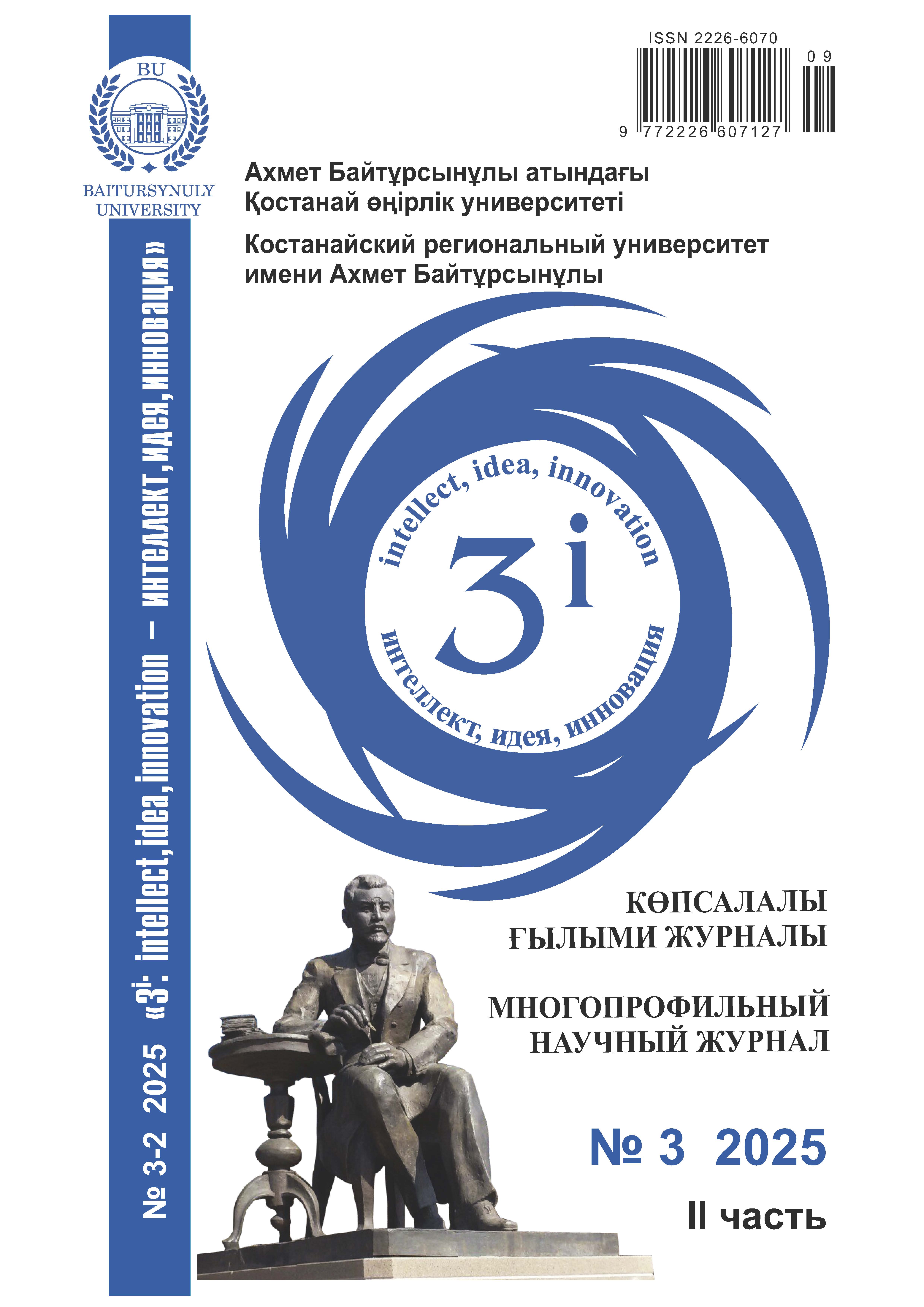АБАЙТАНУ ПӘНІН ОҚЫТУДЫҢ ФИЛОСОФИЯЛЫҚ АРНАЛАРЫ
DOI:
https://doi.org/10.52269/KGTD2532203Кілт сөздер:
Абай Құнанбаев, толық адам, философия, рухани құндылықтар, моральдық тәрбие, білім беру, оқыту әдістеріАңдатпа
Мақалада Абай Құнанбаевтың «Толық адам» тұжырымдамасы – ақыл, жүрек және қайраттың үйлесімділігі – қазіргі білім беру жүйесінде оқушылардың рухани, зияткерлік және моральдық дамуын қамтамасыз етуде маңызды екені көрсетілді. Ақын шығармашылығындағы адамгершілік, әділеттілік, білім мен еңбекке ұмтылу идеяларының тәрбиелік әлеуеті заманауи білім беру міндеттеріне сәйкес талданып, олардың оқыту үрдісінде алатын рөлі айқындалды. Абай мұрасының философиялық-этикалық мазмұны оқушылардың дүниетанымын кеңейтіп, сыни әрі шығармашыл ойлауын дамытуды көздейді. «Қара сөздері» мен поэзиясы тек қазақ мәдениетінің негізі ғана емес, қазіргі жаһандық талаптарға жауап беретін тәрбиелік құрал ретінде де ерекше мәнге ие. Абай әділеттілік, моральдық құндылықтар мен еңбек мәдениетін дәріптей отырып, қазіргі қоғам мәселелерін шешуге де ықпал етеді. Зерттеуде топтық жұмыс, диалогтық оқыту, мультимедиалық құралдар мен шығармашылық тапсырмалар оқушылардың сабаққа қызығушылығын арттыратыны көрсетілді. Бұл әдістер философиялық‑моральдық ұғымдарды терең түсініп, оларды күнделікті өмірге енгізуге мүмкіндік береді. Сондай-ақ, Абай шығармаларын оқыту барысында тұлғаның рухани дамуына бағытталған нақты педагогикалық стратегиялар ұсынылды. Мақалада Абай философиясы ұлттық және жалпыадамзаттық идеяларды үйлестіруде тиімді құрал екені айтылды. «Ғылымды сүйсең, оқы және еңбек ет» қағидасының оқушыларды ғылымға, ізденіске және шығармашылыққа ынталандыратыны дәлелденді. Абай табиғатқа философиялық тұрғыдан қарап, экологиялық және әлеуметтік мәселелерді шешуде әділеттілік, мейірімділік пен жанашырлықтың маңызын көрсетеді. «жерді құрметте» идеясы қазіргі экологиялық білім мен тәрбиенің негізі саналады.




